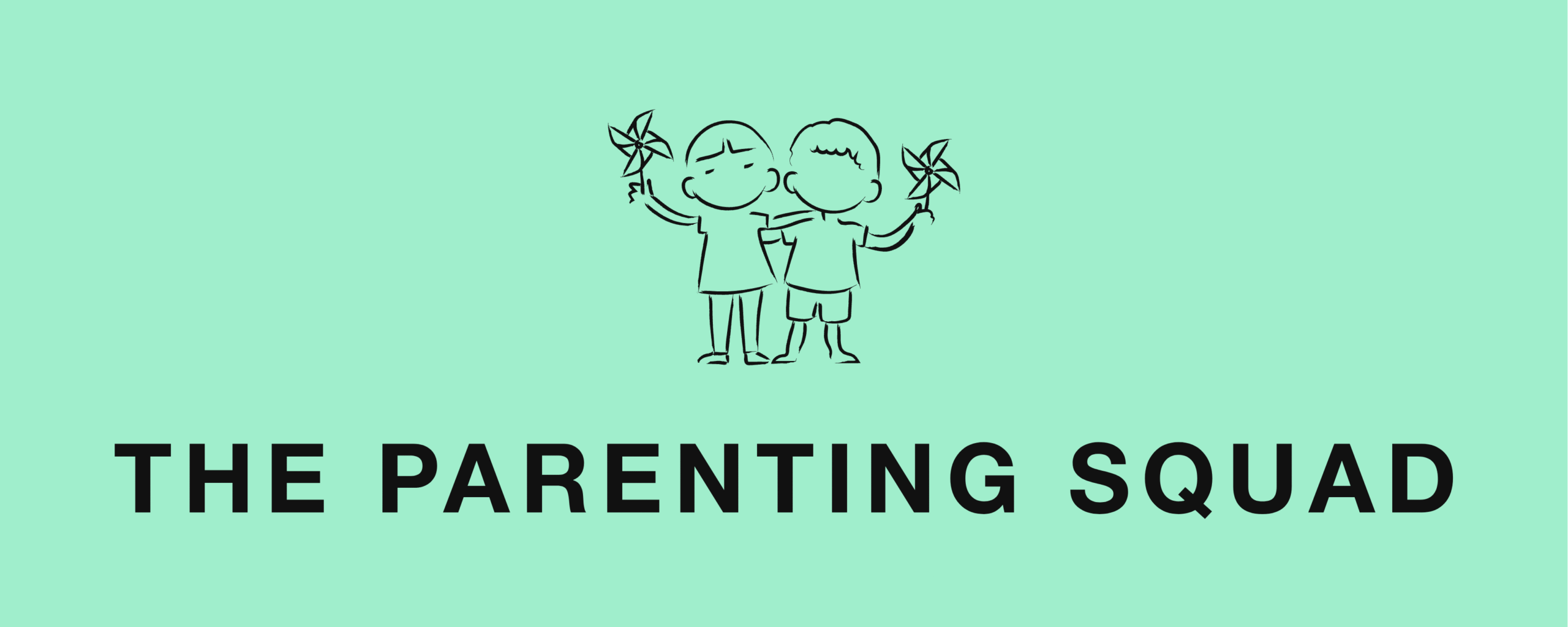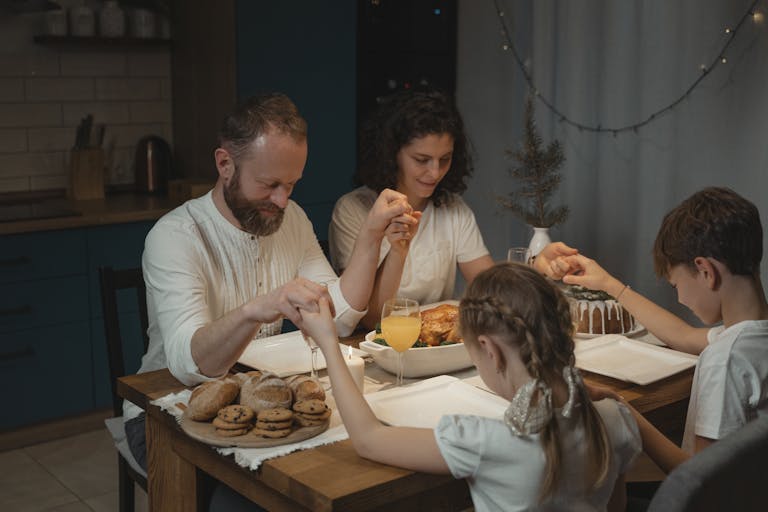Do you ever feel like your family conversations are less “The Brady Bunch” and more like a diplomatic summit where everyone speaks different languages? You’re not alone! Many parents and families, including adults of all ages, assume family counseling is only for families facing major crises or severe dysfunction. But here’s the thing: family counseling can be just as valuable for everyday challenges as big problems.
Think of it this way—you wouldn’t wait until your car completely breaks down before getting regular maintenance, right? The same logic applies to your family’s emotional well-being. Whether you’re navigating the choppy waters of teenage eye rolls, helping siblings stop treating the living room like a battlefield, or simply wanting to strengthen your family bonds, a family counseling service can be a game-changer for families seeking support.
Many families find themselves stuck in patterns that don’t work anymore. Maybe your once-chatty 10-year-old has suddenly become a master of one-word responses. Perhaps you’re blending families and everyone’s still figuring out the new dynamics. Or perhaps you’re tired of the same arguments happening on repeat like a broken record.
In this post, we’ll explore how family counseling can help with these everyday situations, when it makes sense to seek support, and how to find the right counselor for your unique family. Family counseling supports healthy family life and helps families thrive in everyday situations. Because here’s the truth: seeking help is a sign of strength, not weakness—and every family deserves tools to thrive together.
What is Family Counseling and Family Therapy, and How Do They Work?
Family counseling is a safe space where your whole family can come together with a trained professional who acts as a neutral guide. Sessions often involve several members of the family working together. Think of your counselor as a translator who helps everyone understand each other better and provides proven strategies for building stronger relationships.
Unlike what you might see in movies, family therapy isn’t about lying on a couch and diving deep into childhood trauma (though that can happen if needed). Instead, it’s often focused on practical, here-and-now challenges. Sessions might involve role-playing better communication techniques, learning how to set boundaries that work for everyone, or practicing conflict resolution skills that don’t end with someone storming off to their room.
Your counselor might help your family identify patterns that aren’t serving you well. For example, maybe every conversation about chores becomes a power struggle, or perhaps family dinners have become tense affairs where everyone’s walking on eggshells. A good family therapist will work with clients to recognize these patterns and give them concrete tools to change them.
The beauty of family counseling is that it’s customized to your situation. A counselor working with a family of toddlers will use very different approaches than one helping parents navigate teenage independence. Family counseling can help manage a range of challenges, including behavioral conditions. The goal is always the sam,e though: helping your family communicate better, understand each other more deeply, and build stronger connections.
Why Family Counseling Isn’t Just for Crisis Situations
Here’s where we must bust a major myth: family counseling isn’t just a last resort when everything falls apart. It’s actually most effective when you use it proactively—like getting regular checkups to stay healthy rather than waiting until you’re sick.
Regular family counseling can help prevent small issues from snowballing into bigger problems. That occasional bickering between siblings? With the right tools, it doesn’t have to escalate into daily warfare. Those communication gaps with your teenager? They don’t have to widen into a complete disconnect. Family counseling can also be an effective treatment for a range of mental health problems, including depression, anxiety, and mood disorders.
One of the biggest benefits is learning better communication skills. Let’s be honest—most of us never took a class on “How to Talk to Your Family Without Everyone Getting Defensive.” Counseling can teach you techniques like active listening, expressing needs without blame, and having difficult conversations with love instead of frustration. Research shows that treatment can lead to measurable improvements, such as a child’s behavior improving after participating in family therapy.
Family counseling is also beneficial during life transitions. Starting school, welcoming a new baby, moving to a new city, or adjusting to parents working different schedules—these changes can shake up family dynamics even when they’re positive. A counselor can help your family navigate these transitions smoothly and strengthen your bonds. After counseling, parents report positive changes in their children’s social interactions and school performance.
Plus, there’s something powerful about having dedicated time where everyone focuses on the family relationship. No distractions from phones, homework, or work stress—just intentional time invested in understanding and supporting each other.
Types of Family Therapy: Finding the Right Fit
Just as every family is unique, so are the approaches that family therapists use to help families thrive. Family therapy isn’t a one-size-fits-all solution—marriage and family therapists are trained in several forms of therapy, each designed to address specific family dynamics and challenges.
For example, functional family therapy is often used when a child or adolescent is struggling with emotional or behavioral problems. This approach helps families work together to support positive changes in a child’s behavior, focusing on building trust, improving communication, and strengthening relationships among family members.
Structural family therapy takes a closer look at your family’s “architecture”—how roles, boundaries, and hierarchies are set up. If your family is experiencing confusion about who’s in charge or if boundaries between parents and children feel blurred, this type of therapy can help create a healthier balance and clearer expectations for everyone.
Then there’s strategic family therapy, which identifies patterns that keep families stuck and finds practical, solution-focused ways to shift those patterns. This approach is constructive for families who feel like they’re having the same arguments or facing the same issues repeatedly.
Marriage and family therapists are skilled at choosing the right approach—or blending several forms—to fit a family’s needs. By understanding the different types of family therapy available, individuals and families can feel empowered to find the right fit, address their unique challenges, and move toward greater well-being and connection.
When Can Family Counseling Help? (Everyday Scenarios)
You might be wondering, “Okay, this sounds great in theory, but when would my family benefit from counseling?” Great question! Here are some everyday situations where families often find counseling helpful:
Navigating Family Changes: Maybe you’re blending families and everyone’s still figuring out new traditions and boundaries. Or perhaps grandparents have moved in, and you’re all adjusting to a multi-generational household. These transitions are normal, but they can benefit from professional guidance to help everyone feel heard and valued.
Communication Roadblocks: Does asking your kids about their day result in shrugged shoulders and “fine” responses? Are family meetings turning into complaint sessions? A counselor can help you learn effective communication techniques, turning those frustrating conversations into meaningful connections.
Sibling Dynamics: If your kids treat each other more like enemies than allies, family counseling can help. Rather than constantly playing referee, you can learn strategies to help your children resolve conflicts independently and enjoy each other’s company.
Technology Boundaries: Screen time battles are real, and they’re exhausting. Family counseling can help you establish technology agreements that everyone can live with, while also addressing the underlying needs that excessive screen time might be masking.
Developmental Challenges: Every phase of childhood comes with its challenges. Whether you’re dealing with toddler tantrums, preteen attitude, or teenage boundary-testing, a counselor can provide age-appropriate strategies and help you understand what’s normal versus what needs attention. Family counseling can also support anger management for children or teens struggling with emotional regulation, and help families navigate the impact of a mental health condition by providing psychoeducation and tailored support.
Building Stronger Connections: Sometimes families seek counseling simply because they want to be closer. Maybe everyone’s busy schedules have created distance, or you want to establish better family traditions and quality time together. Every person in the family, not just children or parents, can benefit from counseling and the personalized care it offers.
Remember, seeking therapy is a form of self-care for your entire family. It’s an investment in your relationships and your children’s emotional intelligence—skills they’ll carry for life.
The Power of Group Therapy for Families
Sometimes, the best way to grow as a family is to learn alongside others facing similar challenges. That’s where group therapy comes in. Led by experienced marriage and family therapists, group therapy brings together several family members—or even multiple families—to share experiences, offer support, and practice new skills in a safe, welcoming environment.
Group therapy can take many forms, from sessions focused on couples therapy to groups that address specific issues like communication, conflict, or parenting. By participating in group therapy, families can see that they’re not alone in their struggles. Hearing how others navigate similar situations can spark new ideas and provide comfort while building a sense of community.
Research studies have shown that group therapy can lead to real improvements in mental, emotional, and even overall physical health. After participating in group sessions, families often report better communication, stronger relationships, and more effective ways to handle conflict. Plus, the group setting offers a unique opportunity to practice new skills in real time, with feedback and encouragement from both therapists and peers.
Whether you’re looking to strengthen your marriage, improve family relationships, or connect with others who understand what you’re going through, group therapy can be a powerful addition to your family’s journey toward well-being.
Family Counseling and Mental Health: Building Resilience Together
Family counseling services are about more than just solving problems—they’re about building resilience and supporting the mental health of every family member. Licensed marriage and family therapists, along with other mental health professionals, work with families to address a wide array of mental health conditions, from anxiety and depression to trauma and adolescent substance use.
What sets family therapy apart is its holistic approach. Rather than focusing on just one person’s symptoms, family therapists look at the bigger picture: how family dynamics, relationships, and even past experiences shape everyone’s emotional health. Counseling services can help individuals and families develop coping strategies, improve communication, and create a more supportive environment for healing and growth by involving the whole family system.
Research has shown that family therapy is especially effective for issues like adolescent substance use, marital problems, and other mental health conditions that impact the entire family. By working together, families can reduce stress, strengthen their bonds, and build the resilience needed to face life’s big and small challenges.
If you’re concerned about a family member’s mental health, or if your family is struggling with stress, conflict, or behavioral problems, reaching out for family counseling services can be a powerful first step. With the support of skilled therapists, your family can move toward greater well-being, understanding, and connection—together.
How to Find the Right Family Counselor
Finding the right family counselor is a bit like dating—you want someone who fits your family’s personality and needs well. Here’s how to find your perfect match:
Start with Credentials: Look for someone licensed as a Marriage and Family Therapist (LMFT) or with similar specialized training in family systems. Most marriage and family therapists must have a master’s degree and significant clinical experience before becoming licensed. In addition, passing a state licensing exam is a key requirement for licensure in most states. While general therapists can be helpful, family specialists understand the unique dynamics of how family members affect each other. Professional organizations such as the American Association set standards for marriage and family therapists, including ethical codes and educational requirements.
Consider Your Specific Needs: Do you need someone who specializes in working with teenagers? Blended families? Families dealing with anxiety or ADHD? Look for counselors with experience with your particular situation—their expertise will make a real difference in how quickly you see progress.
Ask the Right Questions: Don’t be shy about interviewing potential counselors. Ask about their approach to family therapy, how they handle sessions with children of different ages, and what strategies they typically teach families. A good counselor will happily explain their methods and help you understand what to expect.
Trust Your Gut: Consider how you and your family feel during initial consultations. Do you feel heard and understood? Does the counselor seem genuinely interested in your family’s success? Do your kids feel comfortable (or at least not completely resistant)?
Location and Logistics Matter: Consider practical factors like office location, session times that work for your schedule, and whether they offer online sessions if needed. The best counselor in the world won’t help if you can’t consistently get there.
Don’t Settle: If the first counselor you try doesn’t feel the right fit, it’s completely okay to try someone else. Good counselors understand this and won’t take it personally. Your comfort and progress matter more than anyone’s feelings.
Many counselors offer brief consultation calls during which you can ask questions and get a feel for their approach before committing to sessions. Take advantage of these opportunities—finding the right match is worth the extra effort. Counselors can provide a range of therapy services tailored to your family’s needs, helping you access the best support.
Building Your Family’s Future, One Conversation at a Time
Family counseling isn’t about admitting defeat or acknowledging something’s “wrong” with your family. It’s about recognizing that every family can benefit from better tools, stronger communication, and deeper understanding. Like you invest in your children’s education, sports, and hobbies, investing in your family’s emotional wellbeing is one of the most valuable gifts you can give.
The skills your family learns in counseling—active listening, conflict resolution, empathy, and healthy boundary-setting—aren’t just helpful in the moment. Their life skills will benefit your children in their friendships, future relationships, and families someday.
Ready to explore what family counseling could do for your family? Start by having an open conversation with your family members about the idea. You might be surprised by how receptive they are, especially when you frame it as an opportunity to grow stronger together rather than fixing something broken.
Use online directories or ask trusted friends to recommend family counselors. Many therapists offer free initial consultations where you can ask questions and see if they might be a good fit. Remember, taking this step shows your family that their relationships and emotional wellbeing matter to you—and that’s a pretty amazing message to send.
Your family deserves the best tools to thrive together. Sometimes the best starts with one brave, loving decision to invest in each other. You’ve got this and don’t have to figure it all out alone. Check out The Parenting Squad for more family life tips!





